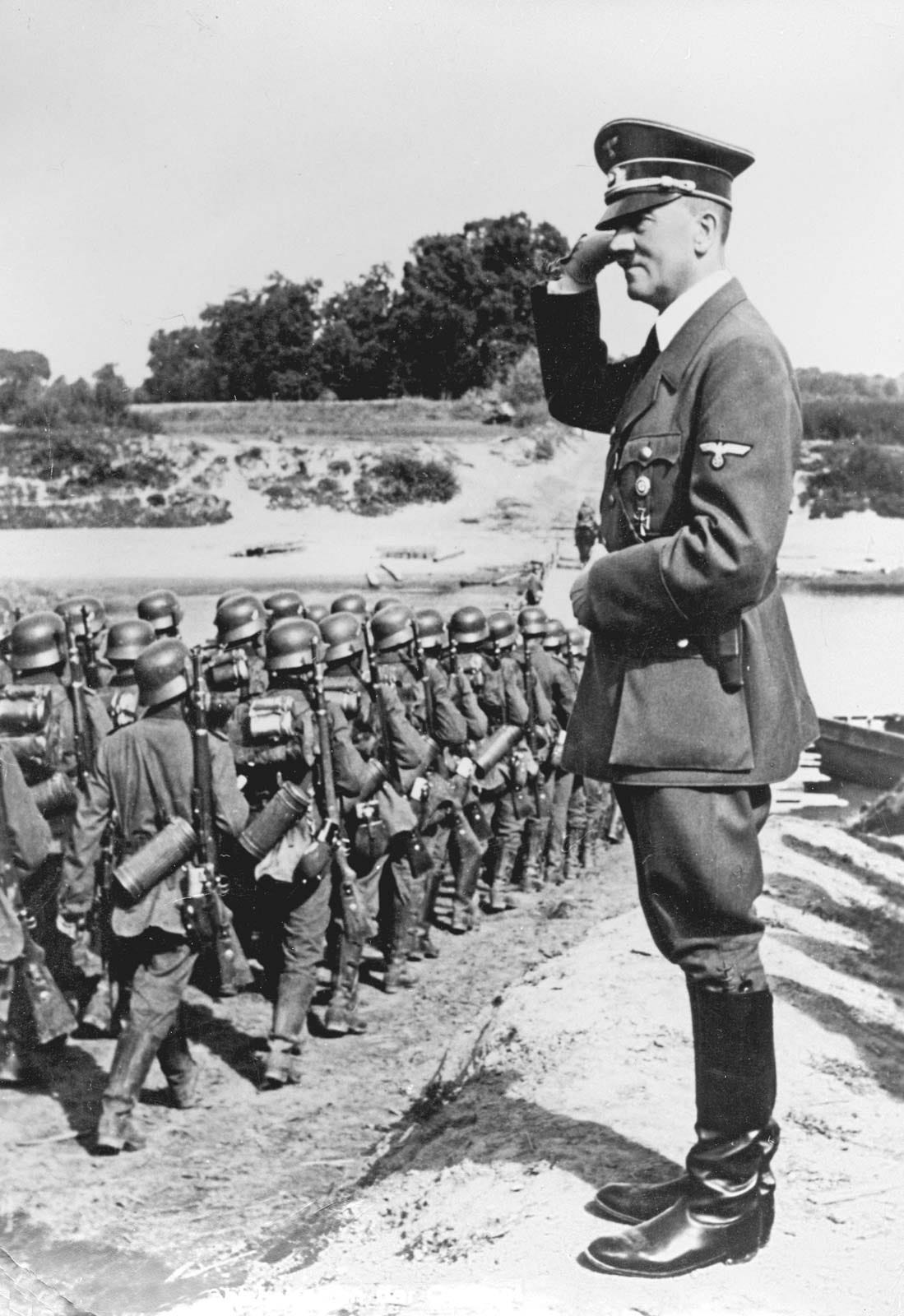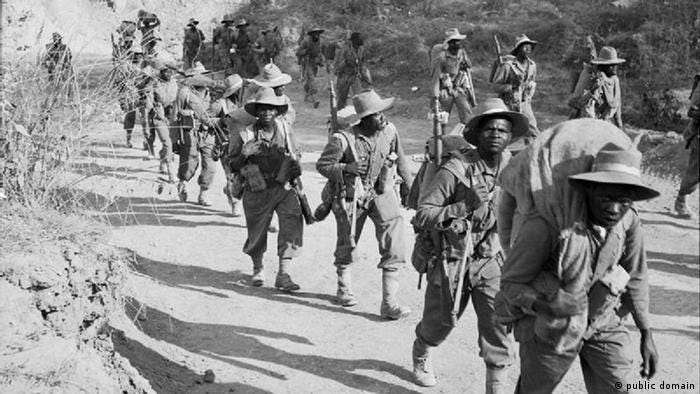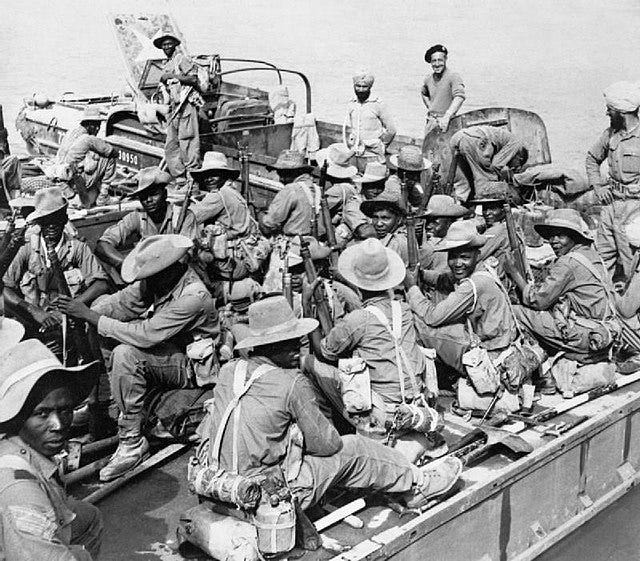Africa and the Second World War
An elaboration of the heavily understated contribution of Africans during the global conflict of 1939 to 1945, sacrificing their lives in a conflict they barely understood in hope to have better lives
When everyone thinks about the Second World War, people picture Adolf Hitler, Nazism, Normandy and everything associated to that, which is accurate. Except that perception for Africans is a little different. As usual, I will explain how this global conflict was lived by Africans and how their war efforts were downplayed by the colonial powers.
The Second World War began in Europe in September 1939 and it spread very quickly to other continents. It was fought principally between the Allied Forces and the Axis Powers. The rapid invasion of continental Europe by the Germans indeed transported the conflict to other places, in particular to Africa; this is why the stages of the history of this continent were determined by the progress of the hostilities. In the world order that Nazism and its allies wanted to establish was very elaborate and carefully planned, especially in the affairs regarding Africa. They had planned a new colonial partition in which:
The North of Africa would go to Italy,
The sub-Saharan part to Germany while
The Afrikaners would dominate the southern regions.
If you like this article, or would like to contribute to further my research, please donate to African History Blog through my PayPal
Strategically located, the Mediterranean zone was a ground of intense military operations; in other regions, such as East Africa or Madagascar, the fighting, often violent, was more localized, while in other areas, there were hardly any direct confrontations. On the other hand, the war situation resulted everywhere in an increased pressure on the African populations which were largely called upon on the human and economic level. From then on, the crucial problem arose again, which had not been resolved after the First World War, of the place of the colonized within the empires, or even of the future of colonization, especially in Africa.
The declaration of war partially affected Africa, like the rest of the colonized world, since it only concerned at first the empires of the belligerent states, Great Britain and France, and a little later Italy. The possessions of Belgium and Portugal benefited from the neutrality of these countries; as for Spain, it was too preoccupied with its internal situation to participate in the conflict.
Ordinary African men and women are largely missing from grand narratives of the Second World War despite being very much present in the war effort. Most histories of the global conflict pay scant attention to Africa and Africans because they focus primarily on the European and Asian theaters, but this lacuna is also due in part to the colonial powers' explicit efforts to downplay and obscure the extent to which they relied on their African subjects to fight and win the war.
Faced with severe manpower shortages as the Axis overran much of Europe and Asia between 1939 and 1942, British and French military planners desperately looked to their African colonies to supply combat troops, military laborers, and specialist units. As the tide of the war turned in their favor after 1943, the British and Free French used African formations to augment their overextended forces. Their goal was to “win the peace” by restoring their national honor and reclaiming lost imperial territories before they could fall into the American or Soviet spheres of influence. Mindful that the brutality of the Axis version of imperialism and the egalitarian promises of the Atlantic Charter had made formal empires less reputable after the war, the colonial powers had good reason to understate the extent to which they had drawn subject populations into a war that did not directly concern them. African soldiers, and the women who interacted with them, are therefore usually consigned to the footnotes of the official histories of the Second World War. Recall this is a pattern I mentioned in the previous posts. This time, millions of Africans fought in the war, but their efforts are carefully hidden in the tales of the folkloric bravery of the soldiers.
In reality, ordinary Africans were deeply involved in every major theater of the war. Indeed, colonial African troops played central roles in two of the major conflicts that historians conventionally date as preceding the formal outbreak of the conflict in 1939. The Italian forces that invaded Ethiopia in 1935 included approximately 40,000 Somalis, Eritreans, and Libyans. One year later, Francisco Franco began his attempted coup d'état against the Spanish Republican government by sending Moroccan soldiers from the Armée d'Afrique to Spain. Some 62,000 Moroccans had fought on the Fascist side by the end of the civil war, and British and French military observers estimated that they suffered a staggering 40 percent casualty rate.
For African workers, World War II brought contradictory experiences of “progressive” reform within authoritarian labor systems and the preservation of archaic oppressive systems of labor mobilization and control. This illustrates the contrasting strategies that colonial powers used in their search for the best labor regimes to control African labor before and during the war. There was a clear difference between brutal, coercive systems of labor discipline used, in this instance, by Portuguese planters on Principe and British rejection of incendiary forms of racial address in the British colonies. But even British reformers were not adverse to using brutal forms of forced labor and ignoring the rural starvation that it caused, as was the case in the tin-producing areas of northern Nigeria after the loss of the Far East colonies to the Japanese in the war. These experiences nudged them along the road to recognizing that Britain did, in fact, have a colonial working-class that might quite possibly be controlled by “enlightened” “modern” systems of worker control and industrial relations used on the English working-class.
The historiography on the participation of Africans in the Second World War has been quite extensive and highly explored in the recent decades. Academic works focusing specifically on recruitment of African soldiers during the Second World War are limited, for the reasons which I mentioned above. The most important publications directly related to this are those of Robert J. Gordon, Hamilton S. Simelane, and Ashley Jackson, all of them touching on aspects of recruitment.

In the dramatic accounts of the history of the Second World War in North Africa, it is often the famous meeting of Charles de Gaulle, Franklin D. Roosevelt, Winston Churchill, General Henri Giraud, and Mohammed V at Casablanca that takes the central stage in the memory. Continual reference to the meeting of the major European leaders in Casablanca is indicative of a major historiographical lacuna related to how the war is written about and generally remembered. Very often the history of the colonial empires, its peoples, and how the war affected them has been outside the lens of European historians of World War Two. The important effort de guerre, as French colonial authorities called the contributions made by Moroccan colonial troops, has been largely ignored. Beyond the troops, little attention has been given to how the war altered the everyday lives of the popular classes and, more specifically, the peasants who formed the backbone of the colonial army. How the war affected the overall political, economic, and social conditions in Morocco remains unexplored. The French ensured that only the help from the Allies are cited, ignoring the contributions of the Africans and the Moroccans in particular.
If you like this article, or would like to contribute to further my research, please donate to African History Blog through my Mobile Money
The embarrassing surrender of French forces to Nazi Germany and the armistice agreement in June 1940 represented a major blow to the prestige of the French nation and the glory of the French military. As a result, the French colonial empire and its colonial troops became a major symbol for the rejuvenation of the French army and its nation. Colonial troops became the embodiment of the French nation and of la France combattante.
I personally think that Free French practices in Africa were no less exploitative than what the Germans did to them during the war. The British and other colonial empires were no different. Fighting for an idea of freedom while taking the rights of another is ironic. Historians estimate that about 3 million Africans died directly or indirectly during the Second World War. A heavy number considering that the war did not concern Africans in the first place. After the Allied victory, the newly formed United Nations granted a Trusteeship status to African colonies to ready them for independence. Except the colonial powers wanted to continue the same inhuman brutal treatment and exploitation of Africans, who had fought bravely and equally at their side during the war. This led to what will be our next topic… The Rise of Nationalism in Africa.
1947 documentary entitled “Autour de Brazzaville,” filmed partly by avant-garde photographer Germaine Krull
Fighting for Britain: African Soldiers in the Second World War (2010) by David Killingray
Ordering Africa by Robert J. Gordon
Colonialism and Economic change in Swaziland 1940-1960 by Hamilton S. Simelane
Botswana 1939-1945, An African Country at War by Ashley Jackson
Africa and World War II by Judith A. Byfield.
Atkinson, Rick (2004) [2002]. An Army at Dawn: The War in North Africa, 1942–1943.
Bauer, Eddy (2000) [1984]. The history of World War II






Thank you for educating me on this. I had no idea Africans were involved in WWII until now.